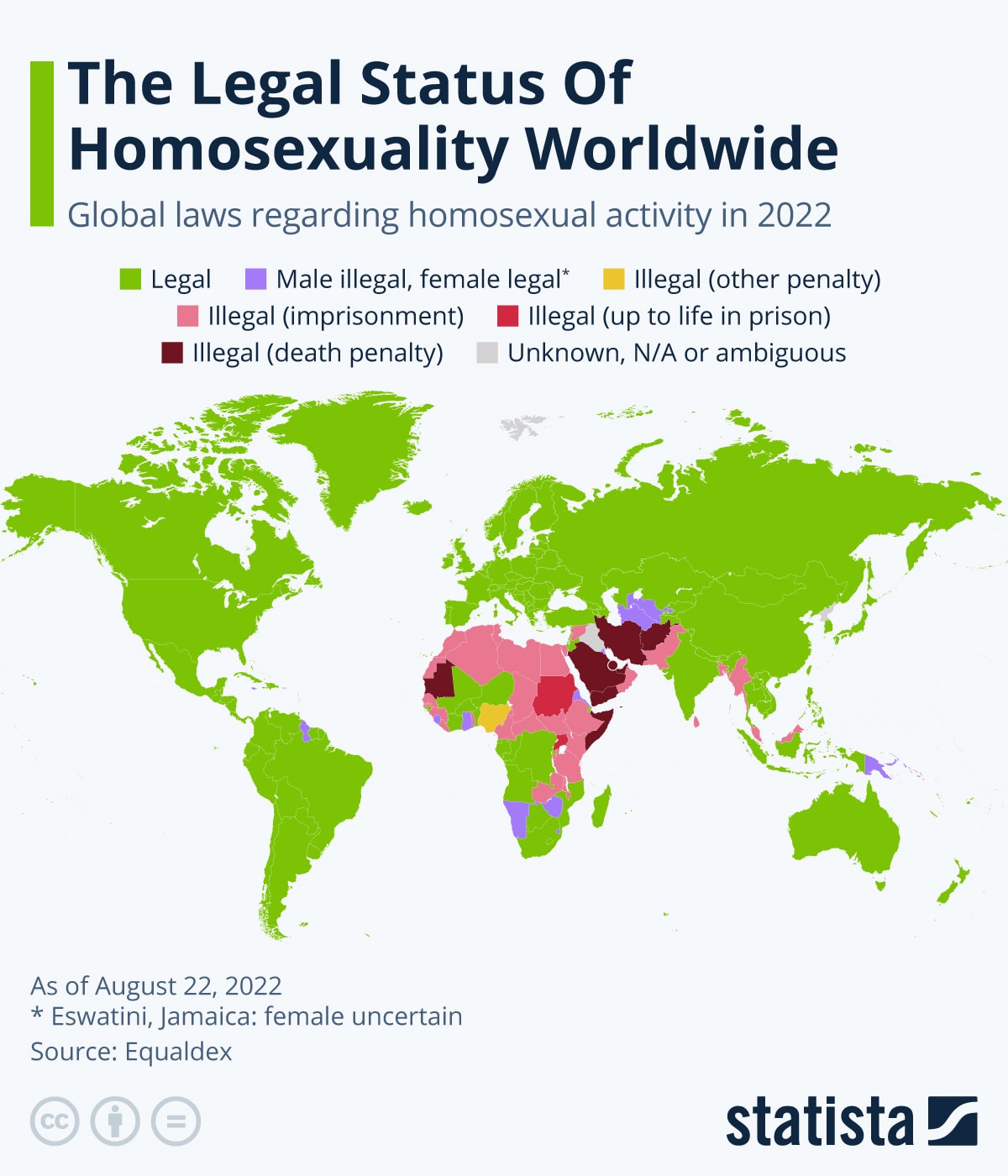India’s Supreme Court, based in New Delhi, has widened the legal definition of a family, ruling that family benefits be extended to same-sex couples, blended families and other families the court considers “atypical.”
The decision establishes a precedent to further India’s easing of the conservative (and anti-LGBTQ+) laws from the colonial era.
“Familial relationships may take the form of domestic, unmarried partnerships or queer relationships,” the court stated, adding that the law “must not be relied upon to disadvantage families which are different from traditional ones.”
At a time when activists are pushing for legalizing marriage for queer couples in India and providing the legitimate stamp on live-in couples, Supreme Court gave a breather with its definition of 'family' during a recent hearing.
— Shreya Mukherjee (@shreya27mukh) August 29, 2022
The case, which revolved around women’s maternity leave, ruled in favour of Ms. Deepika Singh, a nurse whose employer, a government medical institute in northern India, had rejected her request for maternity leave after she gave birth due to the fact that she had already taken time off to care for her husband’s children from a prior marriage.
In their decision, published this week, the two-judge bench said, “[t]he concept of a ‘family’ both in the law and in society is that it consists of a single, unchanging unit with a mother and a father (who remain constant over time) and their children.”
Justice D.Y. Chandrachud wrote in the ruling that this assumption “ignores the fact that many families do not conform to this expectation,” explaining that family could be defined by various configurations of cults occupying the roles of primary caretakers with both biological and nonbiological children.
“These manifestations of love and of families may not be typical, but they are as real as their traditional counterparts, and such atypical manifestations of the family unit are equally deserving not only of protection under law, but also of the benefits available under social welfare legislation,” Justice Chandrachud wrote.
The Supreme Court’s decision is definitive, but because of its limited enforcement powers, it is unclear how much of an immediate practical impact this ruling would actually have, especially in India’s more conservative regions. In addition, a lot of family law cases are settled outside of court.
Nevertheless, in a nation where family matters like child custody sometimes pit unmarried parents against extended families in protracted legal fights in family court, the decision was a significant step toward equality for women and India’s LGBTQ+ population.
India’s ruling is unlike the recent ruling in Singapore, which decriminalised sex between men, but, as the policymakers made clear, was not a step toward equal rights for LGBTQ+ people in the city-state.
Related Articles: LGBTQ+ Rights In Europe: An Uphill Fight | Same-Sex Marriage Legalised With Resounding Majority in Switzerland
In the context of a traditional Indian family system, where several generations often live under one roof, families have the right to argue that the child is better off with the father, a right that is frequently exercised. For instance, Indian law specifies that in most cases, custody of young children should be granted to mothers. Other times, when a child’s mother works outside the house, family courts have granted custody to grandparents or other family members.
Indian family courts have received criticism from certain women’s rights advocates for being overly preoccupied with upholding the traditions of marriage and conventional nuclear families at the expense of negotiating individual rights. However, during the past ten years, the Supreme Court has slowly eroded more traditional ideas on gender, sexuality, women in the workplace, and now, family.
Parents who have children through surrogacy, adoption, or assisted reproductive technologies are not directly mentioned in the ruling.
Dr. Ranjana Kumari, the head of the Centre for Social Research in New Delhi, said similar cases may need to be determined to establish the scope of rights of unconventional families in a nation where social realities are changing far more quickly than the legislation.
In 2014, a court ruling recognised transgender people as a third gender. In 2018, the Indian Supreme Court overturned one of the longest prohibitions on consenting gay sex and decriminalised homosexuality.

In May this year, the court ordered the police to respect the right of women to engage in prostitution. Moreover, in September the court allowed women to enter military roles at the highest levels.
Referring to the ruling widening the definition of “family,” Ms. Anuradha Banerji, an activist with women’s rights organisation Saheli, said: “We welcome this ruling because it moves from the heterosexual ideas of the family and home that have been the bedrock of patriarchy for so long, especially for poor people.”
“This will help people not succumb to marriage because marriage is the only legally understood definition of family. So this is, I think, a very welcome change in the definition of the family.”
This effort has run into a complicated way of dealing with India’s religious diversity. In India, marriage is controlled by both a statute known as the Special Marriage Act and a series of religious regulations that belong to the colonial era and vary by faith. Both terms refer to the joining of a man and a woman in marriage. According to the Indian government, changing India’s legal structure would be necessary to make same-sex marriage legal.
“Science is changing, technology is changing. People’s relationships are changing, the whole society is undergoing social transformations. In the context of family, it needs to be recognised,” Dr. Kumari said.
Editor’s Note: The opinions expressed here by the authors are their own, not those of Impakter.com — In the Featured Photo: LGBTQ+ supporter celebrating with the pride flag. Featured Photo Credit: Indian LGBTQ Supporter/Flickr.









